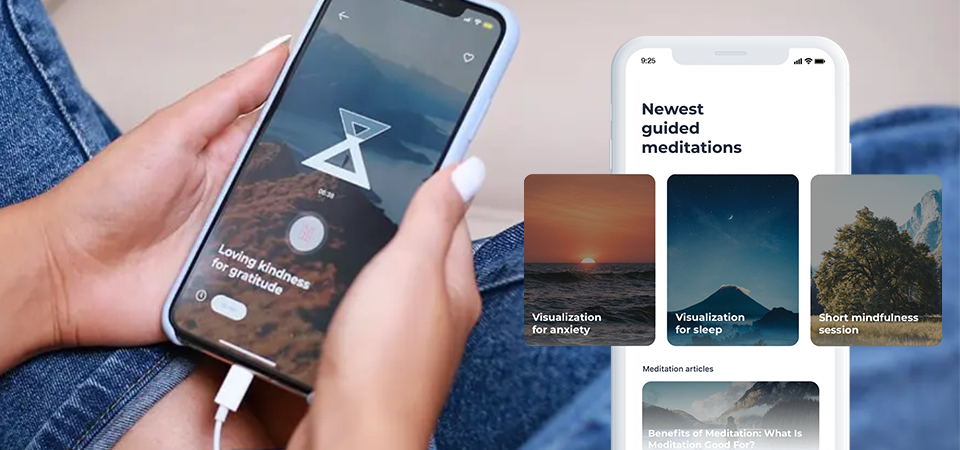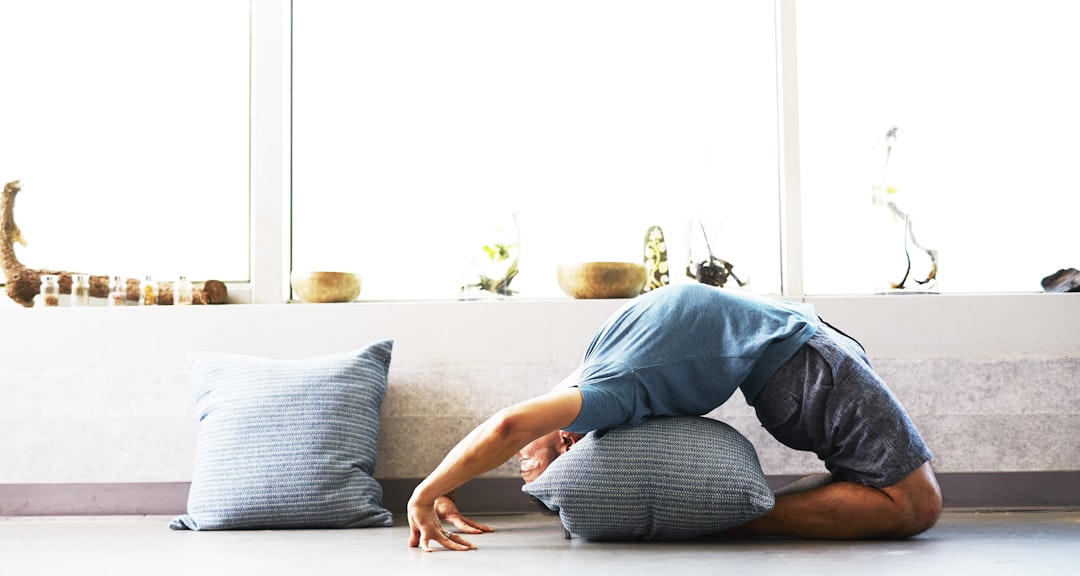Finding the best evening routine apps can transform your nighttime hours from chaotic to calm, setting you up for deeper, more restorative sleep. After years of struggling with my own bedtime routine—scrolling through my phone until well past midnight, mind racing with tomorrow's tasks—I've discovered that the right digital tools can actually help us disconnect and wind down effectively.
The irony isn't lost on me that we're using technology to help us step away from technology. But when chosen thoughtfully, evening routine apps can guide us through calming activities, track our progress, and create the structure many of us need to consistently prioritize sleep. The key is finding apps that complement rather than complicate your wind-down process.
Why Evening Routines Matter for Sleep Quality
Before diving into specific apps, it's worth understanding why evening routines are so crucial for better sleep. Our bodies thrive on predictable patterns, and a consistent pre-sleep routine signals to our nervous system that it's time to shift from the day's alertness into rest mode.
I used to think I could just collapse into bed whenever exhaustion hit, but this approach left me lying awake with an overactive mind. Creating intentional transition time between day and night has been game-changing. The apps I'm about to share can help you build and maintain these crucial evening rituals.
Declutter The Mind

When I first started looking for the best evening routine apps, Declutter The Mind quickly became my go-to choice for winding down. What sets it apart is its focus on practical, accessible meditation without the overwhelming spiritual terminology that can sometimes feel intimidating.
The app offers a robust collection of sleep meditations and guided sessions specifically designed for bedtime. I particularly appreciate the variety—some nights I need a body scan meditation to release physical tension, while other evenings call for letting go practices to clear mental clutter.
The meditation timer feature is perfect for those who prefer unguided practice, and the sleep stories provide a gentle alternative to traditional meditation. What I find most valuable is how the content addresses real sleep challenges—racing thoughts, physical restlessness, and the day's emotional residue that often keeps us awake.
Sleep Tracking and Analysis Apps
Understanding your sleep patterns is crucial for improving your evening routine's effectiveness. Sleep tracking apps use your phone's sensors or wearable devices to monitor sleep stages, duration, and quality.
Sleep Cycle
Sleep Cycle analyzes your sleep patterns and wakes you during lighter sleep phases, which can help you feel more refreshed. The app also provides detailed insights into your sleep quality trends, helping you identify which evening routine elements are most effective.
What I appreciate about Sleep Cycle is its gentle wake-up feature. Instead of jarring alarms that can trigger morning anxiety, it gradually increases volume during your lightest sleep phase within a 30-minute window.
AutoSleep (for Apple Watch users)
If you wear an Apple Watch, AutoSleep automatically tracks your sleep without any interaction needed. It provides comprehensive data about your sleep duration, quality, and heart rate patterns throughout the night.
The app excels at showing correlations between your evening activities and sleep quality. You might discover that your nighttime routine on certain days leads to consistently better rest, helping you refine your approach.
Blue Light Management and Screen Time Apps
One of the biggest sleep disruptors in our modern world is blue light exposure from screens, especially in the hours before bed. These apps help manage your device usage and reduce blue light impact.
f.lux
f.lux automatically adjusts your computer screen's color temperature based on your location and time of day. As evening approaches, it gradually shifts your display toward warmer, reddish tones that are less likely to interfere with your natural melatonin production.
I've been using f.lux for years, and the difference is noticeable. My eyes feel less strained during evening computer use, and I find it easier to transition to sleep after working late.
Moment
Moment tracks your phone and app usage, helping you become more aware of screen time patterns. The app can send notifications when you've been using your device for extended periods, encouraging you to take breaks.
For evening routines, Moment's family features allow you to set device-free dinner times or create phone-free zones in bedrooms. Sometimes awareness alone is enough to motivate healthier evening tech habits.
Habit Building and Routine Tracking Apps
Consistency is everything when it comes to evening routines. These apps help you build and maintain healthy pre-sleep habits through tracking and gentle accountability.
Streaks
Streaks allows you to track multiple daily habits in a simple, visual interface. You can set up evening routine components like "no screens after 9 PM," "read for 20 minutes," or "complete relaxing activities before bed."
The app's strength lies in its simplicity. You don't need elaborate setups or complex features—just tap to mark habits complete and watch your streaks grow. This visual progress can be surprisingly motivating for maintaining consistency.
Way of Life
Way of Life takes a broader approach to habit tracking by letting you categorize time blocks throughout your day. You can mark evening activities as productive (reading, meditation), neutral (TV watching), or counter-productive (late-night social media scrolling).
This color-coded approach gives you a clear visual representation of how you're spending your evening hours and where improvements might be needed. It's particularly helpful for identifying patterns you might not otherwise notice.
Ambient Sound and White Noise Apps
Creating the right auditory environment can significantly improve your evening routine and sleep quality. These apps provide various soundscapes to mask disruptive noises and promote relaxation.
Rain Rain Sleep Sounds
Rain Rain offers an extensive library of high-quality nature sounds, from gentle rainfall to ocean waves to forest ambience. You can mix different sounds to create personalized soundscapes that work best for your space and preferences.
What I love about this app is the ability to set timers, so sounds can fade out after you've fallen asleep. The variety is impressive—when city traffic or neighbor noise threatens to disrupt my evening wind-down, I can find the perfect mask to create a peaceful environment.
Noisli
Noisli combines background noise generation with productivity features. While it's great for focus during the day, the evening color themes and gentle sounds make it excellent for creating a calming pre-sleep atmosphere.
The app's color therapy feature gradually shifts background colors in sync with your chosen sounds, creating a visual element that can enhance relaxation. You can save favorite combinations and easily return to what works best for your evening routine.
Putting It All Together: Creating Your App-Supported Evening Routine
The best evening routine apps work together to support your overall wind-down process rather than competing for your attention. I've found that using 2-3 apps consistently is more effective than downloading every option and overwhelming yourself with choices.
Consider starting with one core app like Declutter The Mind for meditation before bed, then adding a habit tracker to build consistency. As your routine becomes more established, you might incorporate ambient sounds or blue light management tools.
Remember that these apps are tools to support your evening routine, not replace the fundamental elements of good sleep hygiene. They work best when combined with consistent bedtimes, comfortable sleep environments, and relaxation practices that help you transition from day to night.
Making Technology Work for Better Sleep
The goal of using the best evening routine apps isn't to add more screen time to your night, but to create structure and support for healthier sleep habits. Most of these apps are designed to be used briefly—setting up sounds, starting a meditation, or quickly logging habits—before you put devices away for the night.
I've learned that the most effective approach is to use apps early in your evening routine, then gradually reduce screen exposure as bedtime approaches. This might mean using grounding techniques apps right after dinner, switching to ambient sounds during your reading time, and avoiding all screens for the final hour before sleep.
Your evening routine is deeply personal, and what works for others might not work for you. The best approach is to experiment with different apps and combinations, paying attention to how they affect your sleep quality and overall well-being. With the right tools and consistent practice, you can transform your evenings from chaotic transitions into peaceful preparations for restorative sleep.







